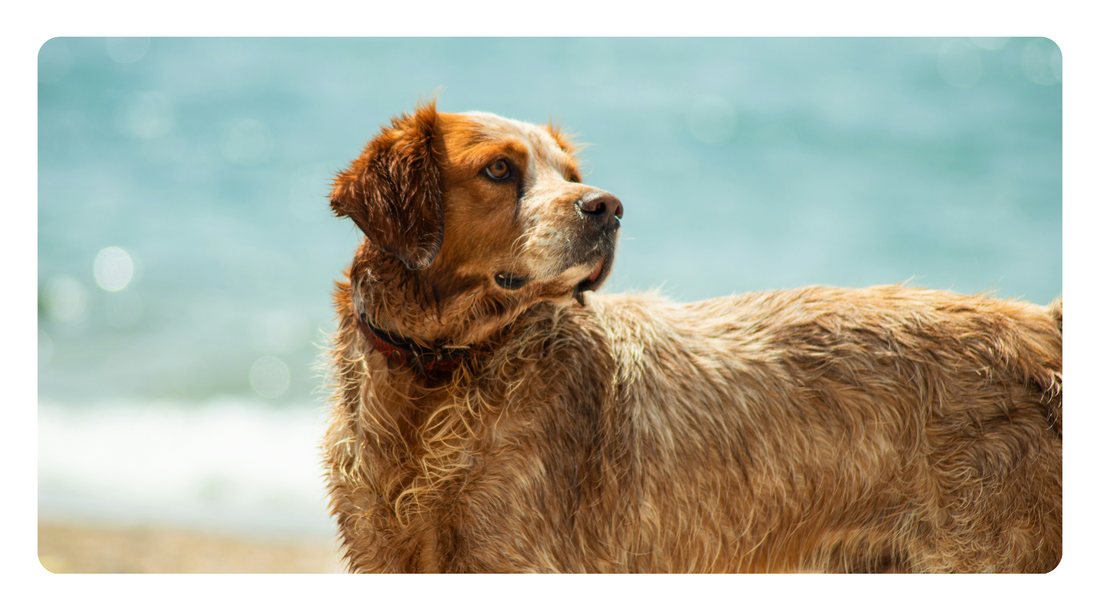If your dog keeps getting urinary tract infections (UTIs), you're not alone—and you're probably frustrated. While antibiotics may seem to clear up the symptoms temporarily, they often don’t address the root cause. That’s why so many dog owners find themselves stuck in a cycle of repeated infections, repeated vet visits, and repeated prescriptions.
The good news? You can stop this cycle. With a deeper understanding of why UTIs happen and a commitment to healing the whole body, it’s possible to prevent UTIs from returning—and support your dog’s long-term urinary and immune health naturally.
What Causes Chronic UTIs in Dogs?
UTIs occur when bacteria—usually E. coli—enter the urethra and make their way into the bladder, where they multiply and cause inflammation. While an occasional UTI can happen in any dog, recurring infections signal a deeper internal imbalance—and unless that imbalance is corrected, infections will keep coming back.
Common underlying causes include:
-
Poor diet: Highly processed kibble diets often create a more alkaline urinary pH, which makes it easier for harmful bacteria to thrive.
-
Imbalanced microbiome: A disrupted gut and urogenital microbiome means fewer beneficial bacteria to defend against infection.
-
Hormonal changes: In spayed females and aging dogs, lower estrogen levels can reduce mucosal defenses in the urinary tract.
-
Anatomical issues: Conditions like recessed vulvas, incontinence, or bladder stones can trap bacteria and prevent full elimination.
-
Incomplete elimination: Holding urine for too long—due to infrequent potty breaks or behavioral issues—can give bacteria more time to multiply.
-
Overuse of antibiotics: Repeated antibiotic use wipes out protective bacteria, creating the perfect environment for reinfection and antibiotic-resistant strains.
Every recurrent UTI is a message from the body that something deeper needs attention. That’s where a root-cause, whole-body approach comes in.
Why Antibiotics Alone Aren’t the Answer
Yes, antibiotics may be necessary for treating acute, severe infections. But when used repeatedly without any lifestyle or dietary changes, they often create more harm than good.
Why this approach fails long-term:
-
Antibiotics destroy both harmful and beneficial bacteria, including the protective flora that line the urinary tract
-
They can lead to yeast overgrowth and gut dysbiosis, further weakening immune defenses
-
They don’t address pH imbalances, hormone depletion, or structural problems
-
They contribute to the development of antibiotic-resistant bacteria that are harder to treat over time
If your dog is stuck in the antibiotic-UTI cycle, it’s time to shift focus from suppression to restoration.
How to Break the Cycle of UTIs Naturally
The goal is to create an internal environment where harmful bacteria can’t take hold—while strengthening the tissues and immune defenses of the entire urinary system. A holistic protocol includes nutrition, microbiome support, herbal therapies, and lifestyle changes.
1. Switch to a Moisture-Rich, Anti-Inflammatory Diet
Hydration is essential for flushing the bladder and supporting mucosal immunity. Unfortunately, dry kibble diets are low in moisture, high in carbs, and can disrupt urinary pH.
Instead, feed:
-
Fresh, raw or gently cooked meals made with whole-food ingredients
-
Moisture-rich foods like bone broth, raw goat milk, and steamed veggies
-
Omega-3-rich fish like sardines to lower inflammation
-
Anti-inflammatory herbs like turmeric or ginger (under vet guidance)
If raw feeding isn’t an option, even switching to a gently cooked or freeze-dried raw food with added moisture can be a huge upgrade.
2. Support the Gut and Urogenital Microbiome
Healthy bacteria in the gut and urinary tract play a crucial role in protecting against infection.
Support them with:
-
Canine-specific probiotics that include Lactobacillus and Bifidobacterium strains
-
Soil-based probiotics (SBOs) that resist stomach acid and colonize the gut
-
Prebiotics like inulin, dandelion root, and slippery elm to nourish beneficial microbes
-
Digestive enzymes to support nutrient absorption and gut lining repair
Avoid antibiotics, dewormers, and chemical flea/tick preventatives when not absolutely necessary.
3. Strengthen the Bladder and Urinary Tract
Certain herbs and nutrients can help reinforce bladder tone, reduce inflammation, and prevent bacterial adhesion.
Recommended remedies include:
-
Cranberry extract (unsweetened) – prevents bacteria from sticking to the bladder wall
-
D-mannose – a natural sugar that binds to E. coli and helps flush it out through urination
-
Marshmallow root – soothes and coats the urinary tract lining
-
Horsetail – strengthens connective tissue and reduces irritation
-
Corn silk – supports bladder tone and acts as a mild diuretic
Look for combination formulas made for dogs or consult your holistic vet for safe dosing.
4. Ensure Frequent Elimination and Proper Hygiene
The longer urine sits in the bladder, the more time bacteria have to grow. Make sure your dog has:
-
Regular access to potty breaks—especially in the morning, before bed, and after meals
-
Proper hygiene (especially for long-haired dogs or females with recessed vulvas)
-
Clean bedding, bowls, and environment to minimize bacterial exposure
-
Plenty of water breaks throughout the day to encourage hydration and urination
Some dogs benefit from natural calming remedies if anxiety or behavioral issues are contributing to urinary retention.
5. Address Hormonal and Structural Imbalances
Spayed and senior female dogs are more prone to chronic UTIs due to reduced estrogen, which affects urethral tone and bladder lining health.
Natural support may include:
-
Glandular supplements (like ovary or adrenal gland)
-
Herbal phytoestrogens (e.g. red clover, alfalfa)
-
Liver support to promote proper hormone detox
-
Pelvic floor therapy or chiropractic care if structural issues are contributing
These options are best explored with a holistic or integrative vet who can tailor support to your dog’s specific needs.
Final Thoughts
If your dog keeps getting UTIs, it’s not just bad luck—it’s a signal that their internal ecosystem is out of balance. Rather than continuing the cycle of suppression, you can support your dog’s natural ability to heal and maintain a healthy urinary tract by addressing diet, hydration, microbiome health, tissue support, and overall detoxification.
With time, consistency, and the right tools, you can stop the infections at the source—and help your dog feel better for good.
At The Organic Dog Shop, we’ve curated a selection of high-quality urinary health supplements, probiotics, and detox-friendly foods designed to support your dog’s bladder and immune system holistically. Explore our urinary tract and immune support collection to help your dog heal from the inside out—naturally, safely, and permanently.

